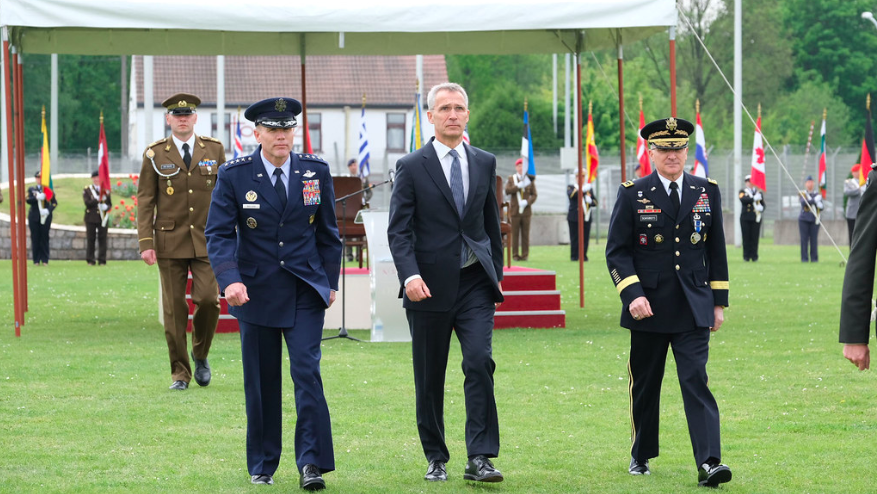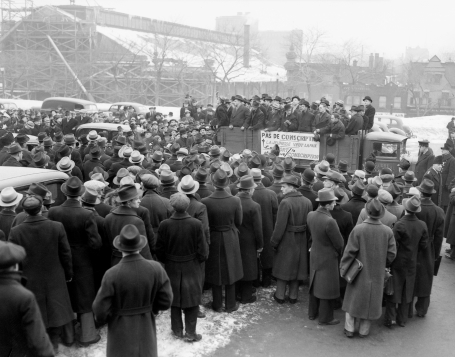By: Metodija A. Koloski & Mark Branov
Rarely has a country’s standing in the community of nations collapsed as quickly as that of Greece. For months now, the nation has been on the cusp of defaulting on its massive debt, thereby threatening not only the global economy, but also the very structure of the European Union.
And yet, Greece always seems to have plenty of money on hand to wage its obsessive propaganda war against the independent republic of Macedonia, which sits on Greece’s northern border.
As always, Balkan problems are rooted in history. More than a century ago, the Macedonians fought to free themselves from the Ottomans, at the Ilinden Uprising. A decade later, world powers succeeded in using the proxy armies of Bulgaria, Greece and Serbia to push the Ottomans out of Macedonia, and eventually Europe. But those three kingdoms then went to war against one another, while the indigenous Macedonians were pushed aside.
In 1913, the Treaty of Bucharest crippled the prospect of an independent Macedonian state. A large part of Macedonian territory was annexed to Greece; another large part went to the King of Serbia; and a smaller part to the Bulgarians.
Since then, the Greek state has been paranoid about losing its northern territory to a unified Macedonian entity. This fear led to, among other things, systematic killing of Macedonians in northern Greece. Through three major wars, countless Macedonians were killed or forced from their homes by the Greek state. This “Hellenization” policy ultimately failed, and a restless Macedonian minority continues to struggle under Greek rule to this day.
Until the mid-1980s, the word “Macedonia” itself was taboo in Greece. But, when it became obvious that Yugoslavia — into which part of Macedonia had been absorbed when that country was formed — would disintegrate in the twilight of the Cold War, Athens decided to switch tactics by co-opting the Macedonian “brand.”
By the late ‘80s, Greek officials had started renaming everything in northern Greece, to give it an artificial Greco-Macedonian façade. Airports, universities and roads were renamed as “Macedonian,” and new Alexander of Macedon statues were erected for the first time. To this day, Greece demands that the term Macedonia be used, by itself, only in reference to the region of northern Greece upon which it has fastened this geographical label.
In 1991, the real Macedonia declared independence peacefully — one of the first pieces of the former Yugoslavia that went its own way. This angered Serbia’s Slobodan Milosevic and Greece’s Constantinos Mitsotakis, who even considered a military invasion. Greece blocked Macedonia’s UN membership and imposed a devastating three year trade embargo, which left Macedonia with 70% unemployment. But Milosevic eventually became preoccupied by wars in Bosnia and Croatia, so the invasion never came.
In response to Greek objections to Macedonia’s alleged appropriation of “Hellenic” symbols, Macedonia modified its national flag, and eventually was admitted to the UN under the ridiculous temporary term “the Former Yugoslav Republic of Macedonia” (“FYR Macedonia”). Such compromises were embedded in an agreement called the Interim Accord (IA), which led to the diplomatic stalemate that persists to this day. The IA forces Macedonia to continue “negotiations” with Greece ad infinitum, even though the Macedonians (rightly) have no intention of backing off from their name or identity. Meanwhile, the Greeks continue to make life as difficult as possible for Macedonia in international fora. In 2008, for instance, Athens vetoed Macedonia’s NATO membership.
Canada has taken a different approach, however. In 2007, Canada officially dropped the use of “FYR” before the word Macedonia, and fully recognized Macedonia as what it is — Macedonia, full stop. In 2009, National Defence Minister Peter MacKay suggested a “consensus minus one” formula for new membership, to free NATO from obstructionist Greek tactics.
The NATO Summit in Chicago next May represents a historic chance to lift any doubt over Macedonia’s future security. Macedonia has met all the requirements for NATO membership. Indeed, it is the fourth largest contributor per capita to the ISAF mission in Afghanistan, despite not even being a NATO member yet.
It is a moral imperative for Canada to truly stand up to the bankrupt Greeks next May, to support Macedonia’s identity as a prospective NATO member, and to preserve peace and security in the Balkans.
Metodija A. Koloski is the president of the United Macedonian Diaspora (UMD) — a leading international non-governmental and non-profit organization advocating for the interests and needs of Macedonians and Macedonian communities worldwide. Mark Branov is the editor of UMD Voice magazine. This piece originally appeared in the National Post on November, 28. Photo credit:Reuters Pictures.
Disclaimer: Any views or opinions expressed in this article are solely those of the author and do not necessarily represent those of the NATO Council of Canada.



